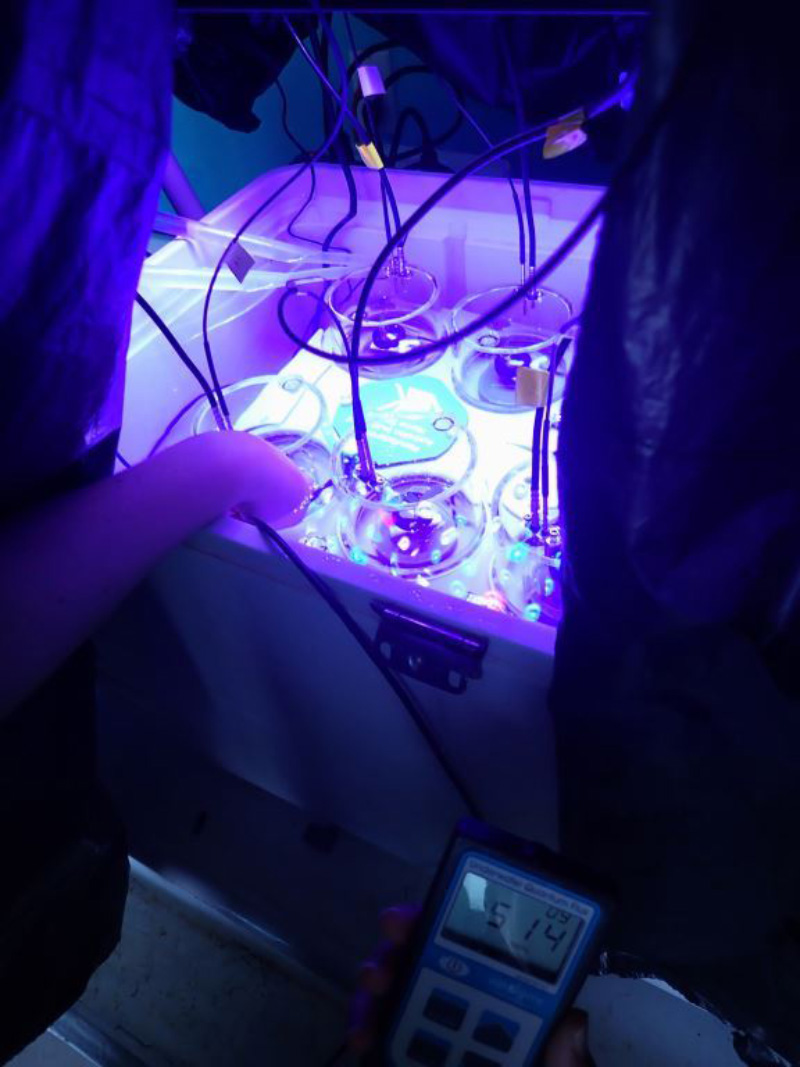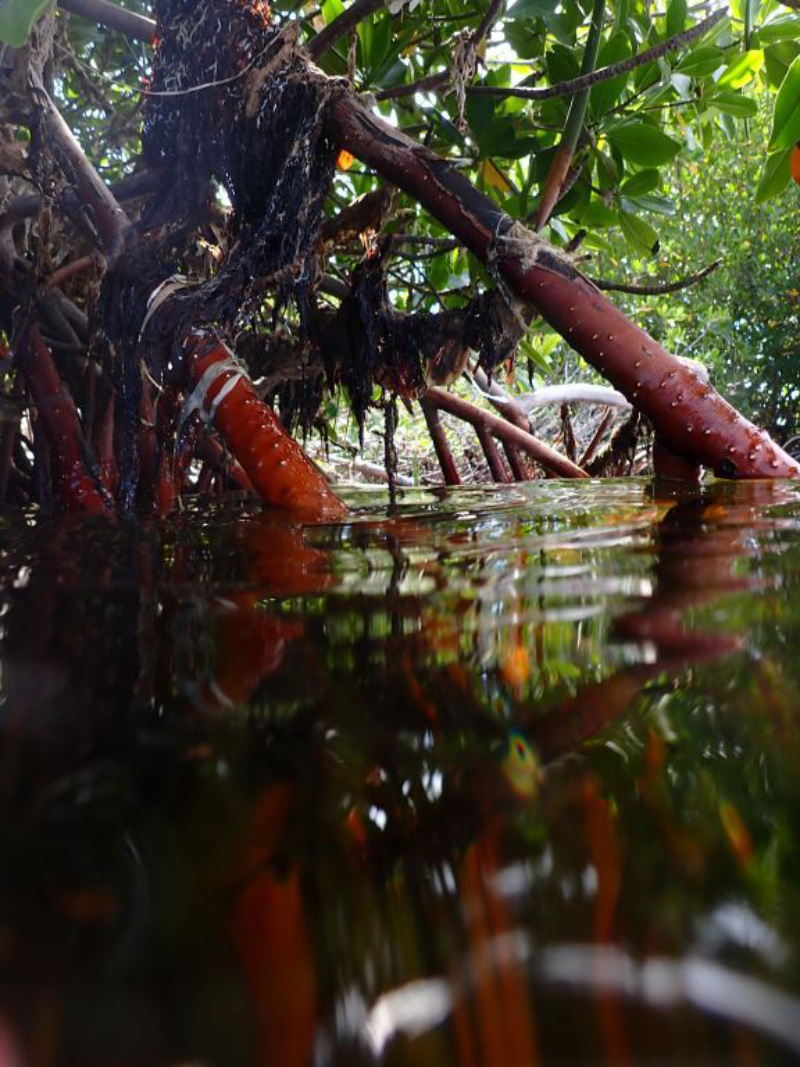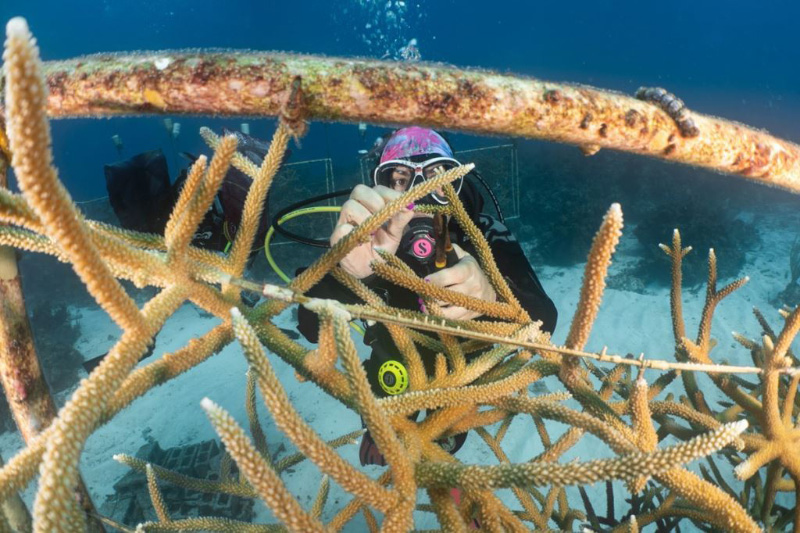CCMI Begins Research Into Blue Carbon Offsets
The Central Caribbean Marine Institute [CCMI] announced a new programme in collaboration with Butterfield investigating how blue carbon offsets and ecosystem-based restoration can be put into practice in the Cayman Islands to mitigate climate change.
A spokesperson said, “The threats posed by climate change are ever-pressing and the effects are becoming more visible in ecosystems, biodiversity, and even weather events. Climate action is needed at international, national, and local levels to reduce the impact on the planet and protect the most vulnerable habitats and the services they provide.
“Carbon offset schemes are used by environmentally conscious entities to mitigate their carbon emissions by investing in initiatives to promote, protect, or restore natural habitats that store and cycle carbon from the atmosphere.
“Blue carbon offset takes this principle and applies it to the ocean and marine habitats. Compared to terrestrial habitats, marine ecosystems store and cycle 93% of the planet’s carbon. This level of carbon sequestration and the vast marine area of the Cayman Islands puts us in a strong position to implement effective blue carbon offset strategies in the race to net-zero.
“Although carbon offsetting alone is not the answer to climate change, it is a powerful tool to buy us time while ecosystems adapt, and carbon emissions are reduced. When conserving biodiversity is one of the main foundations of offsetting activities, these schemes can deliver joint benefits for both atmospheric carbon levels and the health of natural ecosystems.
“CCMI’s Blue Carbon Offset and Biodiversity programme will determine the potential of tropical marine habitat restoration to sequester carbon and develop local initiatives that engage stakeholders in carbon offset and biodiversity activities.
“CCMI’s researchers will investigate the amount of carbon stored in corals and seagrass and how restoring corals near seagrass impacts carbon sequestration. This holistic, ecosystem-based approach is a key element of the programme, examining biodiversity and ecosystem-based restoration in relation to sustainable blue carbon offset schemes that align with conservation planning and protection.
“CCMI’s ongoing commitment to education and outreach will be continued through this project. Our education team will develop immersive conservation and education to introduce students and local stakeholders to carbon offset activities and their connection with the bigger picture of biodiversity health and climate change.
“The future of the project will build upon these outputs to create a model that will allow companies to obtain certified carbon credits through ecosystem-based marine restoration. This will mean that local and international companies have the evidence they need to invest in sustainable blue carbon offset schemes that support marine habitat restoration in the Cayman Islands. This blueprint will be shared regionally for replication to deliver even greater climate action on the international stage.”
Mike McWatt, Butterfield’s managing director in Cayman, said “As part of Butterfield’s sustainability framework, we are committed to helping protect the environment and, given our island locations, we have a focus on the oceans. This is why we are pleased to be backing CCMI’s research into habitat restoration for the next three years with the aim of better understanding how tropical marine environments can contribute to the blue carbon offset agenda. We look forward to following CCMI’s progress and supporting their overall efforts to protect and restore coral reefs.”
The spokesperson said, “CCMI would like to thank Butterfield for supporting this vital work to address key knowledge gaps for blue carbon offsetting and raise awareness of climate change, carbon reduction, and how a healthy marine environment not only protects our coral reefs but contributes to the overall health of our planet.”
Read More About
Category: All, Environment





